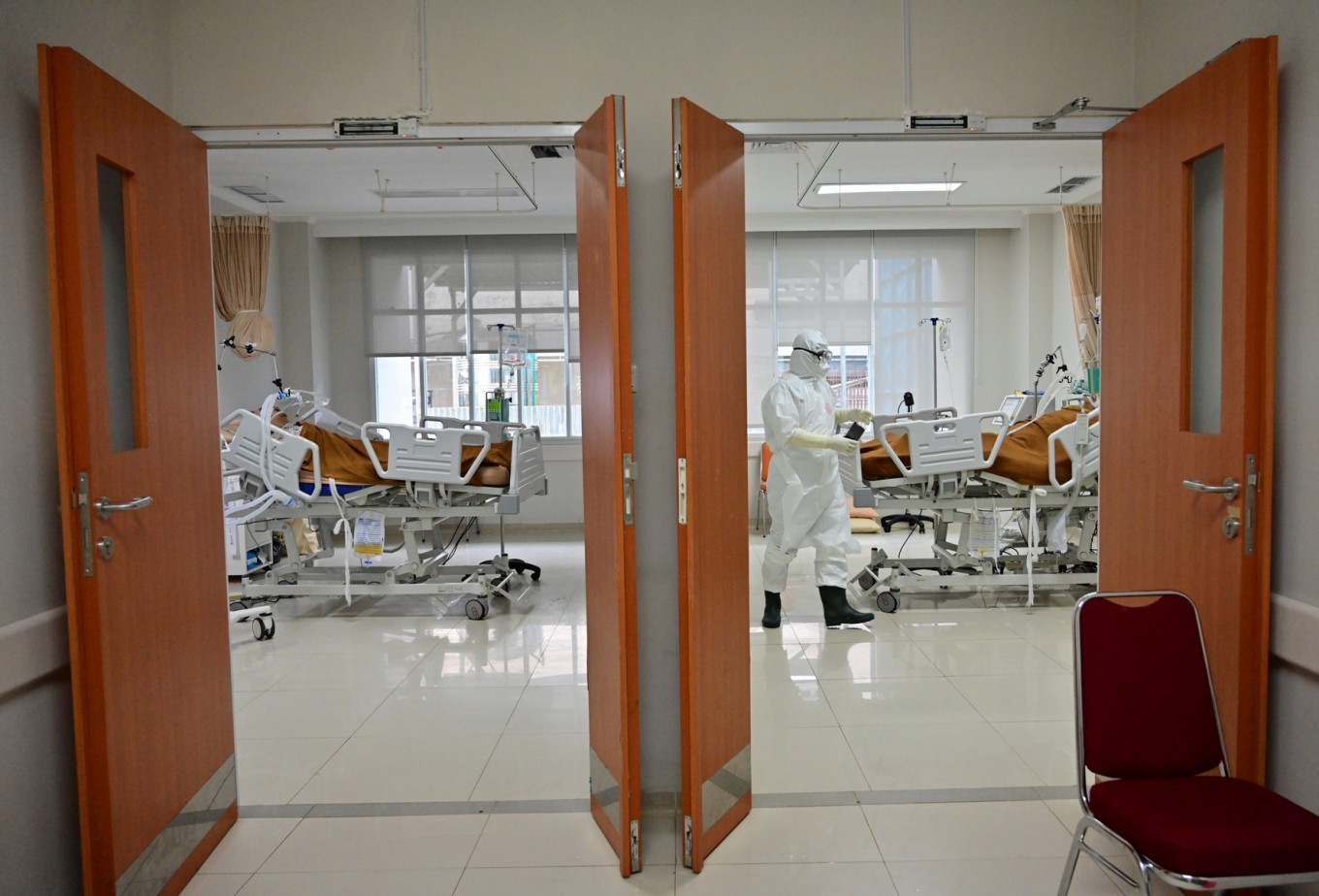Popular Reads
Top Results
Can't find what you're looking for?
View all search resultsPopular Reads
Top Results
Can't find what you're looking for?
View all search resultsIn 'critical' condition, hospitals struggle to decide who gets into ICU
Change text size
Gift Premium Articles
to Anyone
E
xperts have urged hospitals to better manage the admission of patients, arguing that most of them were overwhelmed by the constant increase in COVID-19 cases.
“Hospitals are in a critical situation. Several of my doctor friends in Jakarta and some other regions have revealed that their patients’ condition was worsening while the ICUs [intensive care units] were full, so they died.
“Some of our health workers [who contracted the virus] have also experienced difficulties in getting a [hospital] room,” Joko Mulyono, a lecturer and researcher of Jenderal Soedirman University’s School of Medicine said on Tuesday as quoted by kompas.id.
He went on to say that the common way to increase room capacity by converting regular rooms into isolation units and ICUs would require too much time to alleviate pressure on hospitals immediately.
“Therefore, there is a need for ground rules on prioritizing patients [based on medical conditions] for ICU treatment,” said Joko, adding that the rules should be made by the government and related professional associations.
“If we keep on not having the ground rules, we will have this situation we see today that people fight each other [to get a spot] and only a select few gain access,” he said.
Joko further said hospitals would need a scoring system in patient priority. “Usually, a medical doctor association settles a scoring system for patient prognosis. Patients with poor prognosis are usually not among the criteria for those who need to be admitted to the ICU,” he added.
Similarly, Akmal Tahel, a professor of the University of Indonesia’s (UI) School of Medicine, said implementing a patient priority policy was needed because of hospitals running at full capacity.
He went on to say that COVID-19 patients who were admitted to the ICUs still had a good chance of recovery. Patients who are categorized in medium condition need to be treated at hospitals, while asymptomatic patients are treated at isolation wards.
Earlier this month, the national COVID-19 task force said the Health Ministry would add more hospital rooms to treat patients should Indonesia face a case surge of 100 percent.
“If the cases increase by 20 to 50 percent, [hospitals] would continue operating like at the moment,” task force spokesman Wiku Adisasmito said on Dec. 3 as quoted by kompas.com.
According to Wiku, hospitals were capable of accommodating patients if cases did not increase beyond 50 percent. However, should cases increase by 100 percent, the ministry would turn general care units into makeshift rooms for COVID-19 patients.
In this scenario, hospitals would cooperate with the Indonesian Military (TNI) and the National Disaster Mitigation Agency (BNPB) to establish emergency tents at their COVID-19 patient areas. While reassuring the public that the government had done its best to control the spread of the virus, Wiku urged the public to fully comply with health protocol. (nkn)
Editor’s note: This article is part of a public campaign by the COVID-19 task force to raise people’s awareness about the pandemic.










